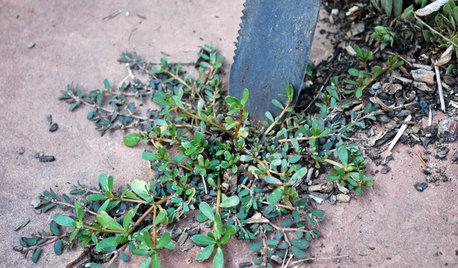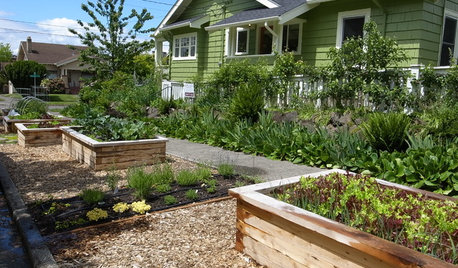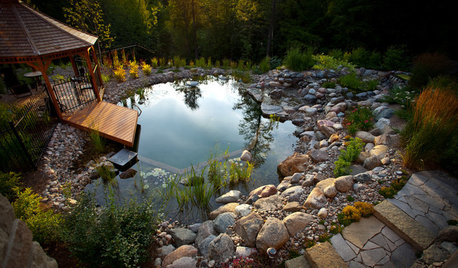Nutrient-Mining by Noncarnivores
agentrdy
16 years ago
Related Stories

EDIBLE GARDENSHow to Grow 10 Favorite Fruit Trees at Home
Plant a mini orchard in fall, winter or early spring to enjoy fresh-off-the-tree fruit the following year
Full Story
GARDENING GUIDESHow to Keep Your Citrus Trees Well Fed and Healthy
Ripe for some citrus fertilizer know-how? This mini guide will help your lemon, orange and grapefruit trees flourish
Full Story
GARDENING GUIDESHouzz TV: Make a Worm Bin for Rich Soil and Happy Plants
A worm-powered compost bin that can fit under a sink turns food scraps into a powerful amendment for your garden. Here’s how to make one
Full Story
LANDSCAPE DESIGNEasy Ways to Manage Stormwater for Lower Bills and a Healthier Earth
Send cleaner runoff into local waterways and spend less on yard irrigation with these simple landscaping approaches
Full Story
GARDENING GUIDES5 Ways to Naturally Win the Weed War
Show irksome weeds no mercy with these tricks for combating them sans chemicals
Full Story
FARM YOUR YARDHow to Farm Your Parking Strip
Get an up-close look at a thriving street-side edible garden, one of many sprouting up in Seattle
Full Story
GARDENING GUIDESLessons in the Rewards of Selfless Gardening
Let go of gardening for your own vision and watch the garden’s own true vision come forth
Full Story
GREEN BUILDING6 Green-Roof Myths, Busted
Leaky, costly, a pain to maintain ... nope, nope and nope. Get the truth about living roofs and see examples from simple to elaborate
Full Story
LANDSCAPE DESIGNNatural Swimming Pools: More Beauty, No Chemicals
Keep your skin and the environment healthy with a pool that cleans itself, naturally
Full Story
HEALTHY HOMEWhat You Need to Know About Dust and How to Fight It
Breathe easier with these 10 tips for busting mites, dander and other microscopic undesirables
Full Story





mutant_hybrid
m_taggart
Related Professionals
Ashland Landscape Architects & Landscape Designers · Forest Acres Landscape Architects & Landscape Designers · South Elgin Landscape Architects & Landscape Designers · Wilmington Landscape Contractors · Berkeley Heights Landscape Contractors · Columbine Landscape Contractors · Dunwoody Landscape Contractors · Las Vegas Landscape Contractors · Mastic Beach Landscape Contractors · Middletown Landscape Contractors · Pueblo West Landscape Contractors · Reedley Landscape Contractors · Lincoln Swimming Pool Builders · Redlands Swimming Pool Builders · West Hollywood Swimming Pool BuildersagentrdyOriginal Author
hunterkiller03
mutant_hybrid